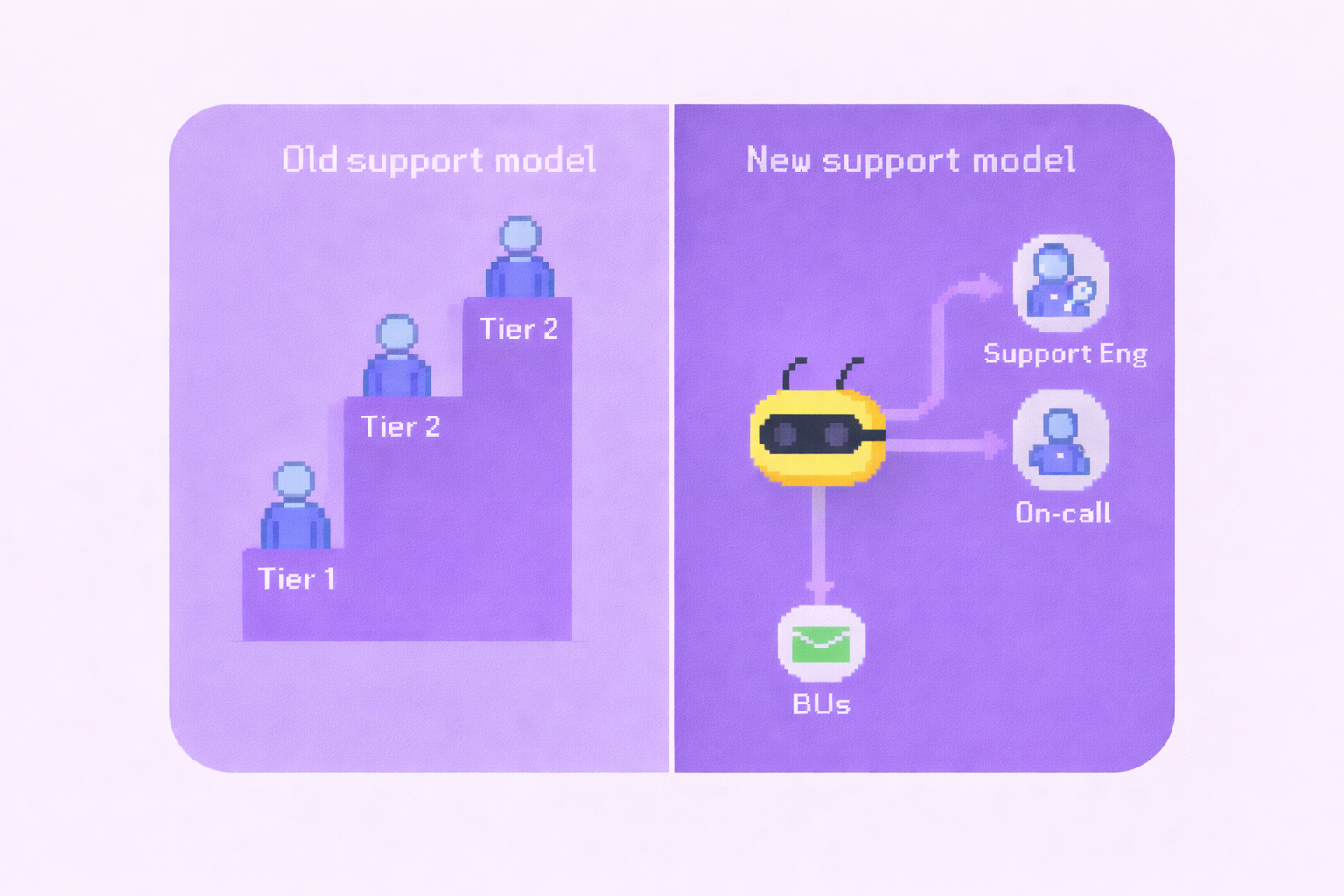Does Your Company Have a Culture Problem? [Quiz]

Whether or not your organization has a strong company culture can make or break the business. Don’t believe us? 😬
Companies with a positive work culture are better places to work, and, more importantly, tend to have higher retention rates. Gallup notes that a strong organizational culture can lead to 85% net profit increase over a five-year period.
Now do we have your attention? 🔎
We’ll dive into the basics of how to think about company culture, the warning signs of a toxic company culture, along with a 5-minute quiz you can take to find out of if your company has a culture problem. Why is this important? you can't improve company culture before knowing if you have a problem.
Take our quiz: Does your company have a company culture problem?
What is company culture?
Company culture encompasses the shared values, attitudes, and behaviors within your organization. In a way, it’s like the physical, mental, and emotional state of a company. What does your place of employment look and feel like? What does it value, what does it believe in, and what energy does it emit? Does the culture feel intense and focused, soft and slow, fun and innovative?
Culture creates the day-to-day experience at a company. And when an organization has a strong company culture, employees are engaged, productive, and satisfied. You can imagine what happens on the flip side; poor company cultures are connected to lower productivity, high turnover, and disengagement.
Poor company cultures are connected to lower productivity, high turnover, and disengagement.
There’s no one-size-fits-all gold-standard company culture, yet there are some red flags to look out for that signal toxic traits.
8 signs of a toxic work culture
1. Employee burnout
If a majority of employees at an organization are feeling burned out, that’s a big red flag. Burnout isn’t just caused by work overload; it can be from having challenges with a manager, too many meetings, disconnection among teammates, or lack of psychological safety. A recent report from Indeed found that over half of U.S. workers are burned out.
2. Office gossip
It’s impossible to say that all office gossip is bad, but there’s definitely a threshold to look out for. Too much gossip can signal a toxic workplace. Healthy workplaces practice radical candor and clear communication; on the flip side, gossip can lead to drama, distractions, and distrust.
3. Lack of actionable DEI policy
Many companies have written up DEI plans and policies. But what if they end up just being a piece of paper that stays filed away? We all know that successful DEI not only enables culturally diverse workforces—it’s vital to business success. Yet many companies struggle with the equitable and inclusive part of the DEI acronym, focusing too much on diversity alone. Other companies struggle to define goals and metrics for their DEI program, lack inadequate training, or don't receive executive buy-in or appropriate budgets.
4. Poor work life boundaries
A poor company culture usually has poor boundaries. Think: employees sending late-night emails or Slacks, managers texting direct reports, or teammates skipping team-building events to focus on a project instead. Healthy company cultures create working environments where employees can be focused and efficient during appropriate times, while allowing a sense of balance after hours.
5. Low use of PTO or sick days
Did you know that nearly half of U.S. workers don’t use all of their paid time off? Whether you have a certain number of PTO or an unlimited policy, this is clear: being afraid to take time off, whether for vacation or because of sickness is a sign of a toxic company culture. Employees tend to not take time off if they are afraid of the repercussions or if they feel like they have too much work to do.
6. Employee silos
Do you ever feel like you have no idea what other departments are working on, even though you are all technically on one team? This is what an organizational silo feels like. If your company is siloed—meaning the flow of cross-departmental information gets stuck—this could a sign that your company culture has work to do. Healthy cultures can break down silos and build stronger, team-wide connections.
7. High turnover
High employee turnover rates is a sure-fire red flag for a company's work culture. While a healthy amount of turnover is normal, if many employees are leaving left and right, it could have to do with several reasons, from poor pay or lack of appreciation, to limited growth, development opportunities, or just downright bad management. Turnover is not only a red flag of poor culture—employee turnover also costs an arm and a leg.
8. Listening but not acting
This one is sometimes tricky to diagnose, but it’s super important to be aware of. Many companies will solicit feedback from employees, listen to challenges, and be proactive about asking for input. Yet, if none of that feedback is acted upon, then you may work in a culture that doesn’t actually practice what it preaches.
The takeaway
Did your quiz results surprise you? Provide relief? Anxiety? No matter what you score, it's important to know that culture is always evolving and adapting—it's never a one-and-done static part of your organization.
We encourage you to share these quiz results with your team and start thinking through ways to grow or improve your team's company culture.
--> Recognition-rich cultures improve engagement, productivity, and retention, too. Schedule a demo with one of our product specialists today.
.webp)







